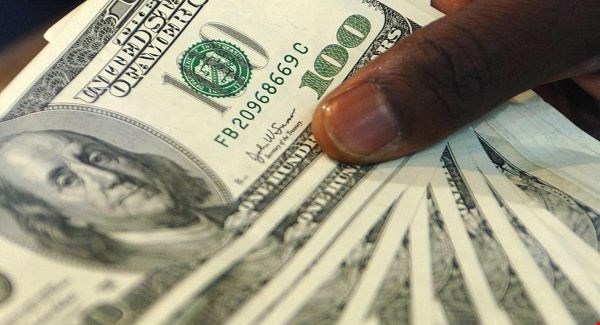Freedomisneverfree
Diamond Member
- Jul 28, 2021
- 4,945
- 7,088
- 1,938
.To get into the middle class one needs more IQ power than most Negroes have.
Follow along with the video below to see how to install our site as a web app on your home screen.
Note: This feature may not be available in some browsers.
.To get into the middle class one needs more IQ power than most Negroes have.
Lincoln wanted to send the freed slaves back to some African country - Libya I think. Not sure about the educated blacks in the Northeast.If the Founding Fathers had had any sense they would have freed the Negroes and forced them to move to Africa. Then they would have passed laws preventing free Negroes to move here.
Germany paid reparations



 economic-historian.com
economic-historian.com
View attachment 834577
Farmers. Fishermen. People who’ve lost bank accounts or pensions. People who’ve had a bad reaction to a COVID vaccine. People who’ve had a reaction to any other vaccine. Indigenous people. Veterans. Descendants of veterans. People who get hurt on the job. People who built nuclear bombs. People exposed to pesticides. Coal miners who get black lung disease. People who lose paychecks or homes from floods, droughts, or other natural disasters. People who are impacted by trade agreements.
That’s a long list. But it's still a fraction of the many people and groups who receive compensation either from or through the government for the harms they have suffered. Every day, someone somewhere in America is being compensated under the concept of what is known as restorative justice, a type of justice that instead of meting out punishment to a wrongdoer, seeks to make the victims or their families whole—or at least repair them as much as possible. Restorative justice is also known as reparative justice, or, in the context of the experience of Black Americans from the first slave ships in the 1600s through to today, simply reparations.
But unlike those other, everyday reparations, Black reparations are seen by many as a highly charged political third rail, so last year Harvard Kennedy School faculty members Cornell William Brooks and Linda Bilmes launched a research project to see if they could change the conversation. What they found is a situation that is, to put it mildly, perverse. Cataloging the harms suffered by Black Americans through the centuries from slavery itself through segregation, disenfranchisement, economic and educational discrimination, wealth inequality, and more, they found that no group was perhaps more deserving of being made whole. They also studied and cataloged a huge system of American restorative compensation that works every day to make people whole for harms they have suffered. What they didn’t find, however, was a connection between the two.

The United States pays reparations every day—just not to Black America
Cornell William Brooks and Linda Bilmes explore the issue of restorative justice for the multifaceted, intergenerational harms Black Americans have suffered.www.hks.harvard.edu

I don't think you know that.The United States pays reparations every day—just not to Black America
Not to 40 million people. Not trillions of dollars.

I don't think you know that.
But;
The U.S. owes 40 million people trillions of dollars.
Can't face the truth todd?
View attachment 834587
View attachment 834590
View attachment 834593
View attachment 834595

Why we need reparations for Black Americans | Brookings
Rashawn Ray and Andre Perry outline the history of reparations in the United States, missed opportunities to redress the racial wealth gap, and specific details for a viable reparations package for Black Americans.www.brookings.edu
What blacks today pay for white progress? Why should anyone alive today who was not born or directly affected by Jim Crow or slavery get reparations?Where is the money coming from?
Blacks are 13 percent of the population, so provide 13 percent of the annual income tax revenue to organizations/ programs in the black community until the 15 trillion is paid. Thats approximately 200 billion annually for 35 years with a 1 time payment of 300,000 for every black citizens who earns less than 400,000 per year. That would be around 9 trillion for programs and around 6 for individual payments. This money would recycle throughout the whole economy, whites will lose nothing.
Blacks have paid for white progress so I'm not going to hear the whining.
After 35 years, you will see a drastic change and the overall American economy will benefit.
You didn’t pay for ANY of it.Whites have got their 6 trillion and then some. And we piad for part of it.
Bullshit'The Whiteness Of Wealth' Probes Why Black Americans Pay Higher Taxes

'The Whiteness Of Wealth' Probes Why Black Americans Pay Higher Taxes
In her new book, tax law professor Dorothy Brown argues that the U.S. systems for generating wealth inherently favor white Americans while also penalizing Black Americans.www.wbur.org
Did you not comprehend this? Making this issue about race is bullshit. It has to do with how many in the marriage are working.'The Whiteness Of Wealth' Probes Why Black Americans Pay Higher Taxes

'The Whiteness Of Wealth' Probes Why Black Americans Pay Higher Taxes
In her new book, tax law professor Dorothy Brown argues that the U.S. systems for generating wealth inherently favor white Americans while also penalizing Black Americans.www.wbur.org
Where is the money coming from?
Blacks are 13 percent of the population, so provide 13 percent of the annual income tax revenue to organizations/ programs in the black community until the 15 trillion is paid. Thats approximately 200 billion annually for 35 years with a 1 time payment of 300,000 for every black citizens who earns less than 400,000 per year. That would be around 9 trillion for programs and around 6 for individual payments. This money would recycle throughout the whole economy, whites will lose nothing.
Blacks have paid for white progress so I'm not going to hear the whining.
After 35 years, you will see a drastic change and the overall American economy will benefit.
Lincoln wanted to send the freed slaves back to some African country - Libya I think. Not sure about the educated blacks in the Northeast.